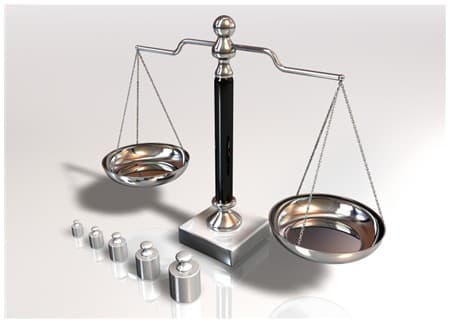Is Non-Profit Debt Relief Better?
- Examine what a non-profit is.
- Review how non-profit debt relief can help you.
- Understand the importance of comparing for-profit and non-profit options.
- Start your FREE debt assessment
Is Non-Profit Debt Relief My Best Choice?
If you are looking for help with a debt problem, you may be drawn to a firm that advertises that it is a non-profit debt relief agency. It is a common belief that non-profit debt relief offers a greater value, less risk, and lower costs than other forms of debt relief.
There are non-profit organizations that can help you with a wide variety of financial problems. To find the right firm, figure out what issue you need help with, and speak with a number of firms, both non-profit and for-profit.
Non-Profits: What are They?
Some people equate "non-profit" with free. They think that because a non-profit debt relief agency is not making a profit, that it is not charging for its services or, if there is a fee, that it is the lowest possible fee available.
"Non-profit" relates to a business’ tax status. A non-profit must comply with requirements laid out by the IRS. A non-profit needs to generate revenue or income to survive, like any other business. A key difference is that non-profits can’t distribute their profits to its members.
A non-profit can pay very high salaries, and many non-profit debt relief agencies do. In fact, some debt relief non-profits pay their top people so much that they they are among the highest paid non-profit executives in the country.
Non-Profit Credit Counseling
The most common non-profit debt relief agency is a credit counseling service. Many credit counseling services, but not all, are non-profit debt relief agencies. They offer two primary services, the same as for-profit credit counseling services:
- Financial Review: Your spending habits, income, assets, and debts are analyzed by your credit counselor. Recommendations are made on what you can do to improve your finances. The consultation is free.
- Debt Management Plan (DMP): A DMP can lower your interest rates on some unsecured debts. If it makes sense for you to enroll in a DMP, your counselor will present you with a formal plan.
Non-Profit Bankruptcy Help
If you want to file for bankruptcy, you are required by law to receive pre-bankruptcy counseling from a government approved non-profit debt relief agency. Your counseling session will cover an in-depth examination of your budget and review other debt relief options that could solve your problem. You can find a non-profit counseling agency in your area that is approved by the US Dept. of Justice, US Trustee Program. These debt relief non-profits offer other services, aside from the pre-bankruptcy counseling. Pay attention to the Dept. of Justice warning that while these agencies are approved to give pre-bankruptcy counseling, the government "has not reviewed nor approved the content of these other services."
When it comes time to file for bankruptcy, you may be able to find low or no cost help. In general free help is restricted to people with low-income or a serious financial hardship. Look for a non-profit legal aid agency in your area, to see if you qualify for free assistance.
Student Loans and Non-Profits
If you are either looking for information about student loans or for help with a student loan problem, there are specific non-profits that may be able to assist you. There are:
- Non-profits you can hire, such as organizations that offer delinquency prevention services for a fee.
- Non-profits that provide student loan information at no cost. You can also find excellent free information about student loans from government sites, such as studentaid.ed.gov.
An interesting connection between student loans and non-profits is that some federal student loan debt can be forgiven, if you work for a non-profit organization. Student loan forgiveness has a lot of rules. Read about Student loan forgiveness, to see if this program can help you.
Non-profits and Debt Collection
If you are struggling with debt, you may be receiving collection calls or threatening letters. You may also be sued by a creditor. The same non-profit legal aid organizations that offer help with bankruptcy can also help you understand your legal rights and the laws that protect you from illegal debt collection. If you are stressed out by debt collectors, look for free help either from a consumer education and advocacy non-profit, or from federal or state government agencies.
Non-profit or For-profit? Shop Around
Non-profit organizations may be able to help you with problems you have with consumer debt, student loan debt, or legal issues like bankruptcy or debt collection. Many times, free help is only available if you’re in a serious financial hardship. Just because a firm is a non-profit, it does not mean that it is going to do good work for you. Make sure you check out the reputation of any non-profit firm you consider working with, just as you would for a for-profit business.
This rule applies especially to non-profit debt relief agencies. Compare their history, reputation, and fee structure with for-profit businesses. Choose a firm that has a solid history and reputation and offers you the best service at the best price. The bottom line is that you need to judge what a non-profit debt relief program can do for you, using the exact same criteria that you use to evaluate any other debt relief program.
Free up cash each month with Freedom Debt Relief

Ozzy S., Freedom client
“Right away, I had more money each month because of program costs so much less than what I was paying on my minimums.”
Actual client of Freedom Debt Relief. Client’s endorsement is a paid testimonial. Individual results are not typical and will vary.

